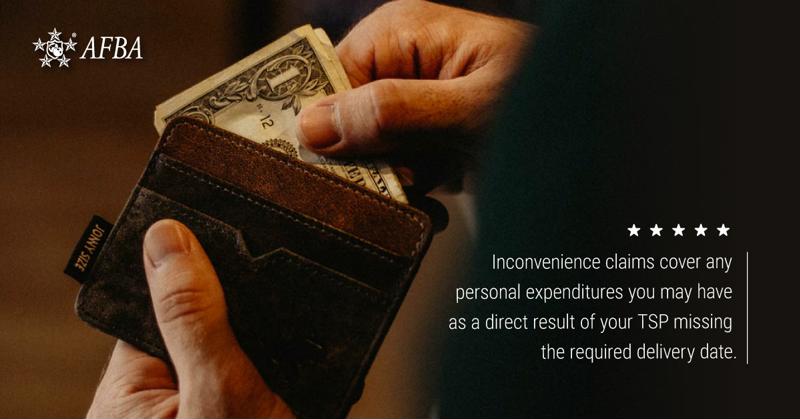In 2013, President Obama issued a proclamation officially recognizing November as Military Family Appreciation Month, marking it as a time to for the country to "celebrate the families who make daily sacrifices to keep our Nation whole."
Though it is far from the largest sacrifice they are asked to make, frequently having to relocate from one duty station to another can be a huge disruption in the lives of military families. Fortunately, there are cures for some of the headaches caused by moving.
If you move to a new location and your household goods aren't delivered on time, you can file an inconvenience claim with your transportation service provider (TSP) to get reimbursed for any out-of-pocket expenses you incurred while waiting for your stuff to show up. To ensure you're protected, though, it's essential to know which goods and services are eligible for coverage, and how you can file a claim.

What items are covered by inconvenience claims?
Inconvenience claims are simply a way to cover any personal expenditures you may have as a direct result of your TSP missing the required delivery date. That means if your bed hasn't shown up yet and you don't feel like subjecting your family to army cots, you can rent a bed or air mattress for the time being, and then submit your receipts to the TSP for a full refund.
Other types of rental furniture that can be covered by inconvenience claims include cribs, chairs, sofas, tables, appliances and one television per household.
Certain purchases are also covered. Any sheets, towels, paper plates, napkins, disposable cutlery or pots and pans you are forced to buy while waiting for your own stuff to arrive can be reimbursed, as long as you remember to save the receipts.
And if renting furniture and purchasing new cookware seems like too much of a hassle, you can potentially get your hotel bills and Chinese takeout paid for, as lodging and meals are also covered, provided they meet certain requirements.
What items aren't covered?
"The maximum liability for lodging and meal expenses cannot exceed the DoD's daily lodging and meal per diem rate."
According to the Department of Defense's official customer moving portal, items expressly excluded from inconvenience claims include groceries and meals if a customer is in a residence, cleaning supplies, toiletries and cosmetics, snacks, military attire and personal clothing, school supplies, toys and any alcohol or drugs. Also, while "laundry service" is covered, dry cleaning is not. And any expenses that occur before the delivery date or out of the local area are also ineligible.
Additionally, the DoD requires that all expenses claimed "must be reasonable," and be directly related to "a definite hardship" caused by the delay in delivery. So while lodging expenses would be covered, a stay in the Plaza Hotel's honeymoon suite would not be. Similarly, although any necessary furniture rental should be eligible for reimbursement, this is sadly not your chance to freely relax on a $5,000 Eames Lounge Chair and Ottoman. The same goes for any purchases, with the DoD specifically singling out Wal-Mart, Target and the Army and Air Force Exchange Service as "reasonable" retailers.
To put an even finer point on it, the maximum liability for lodging and meal expenses cannot exceed the daily lodging and meal per diem rate, which can be found at the DoD's Travel and Per Diem website. For families, per diems are also based on the number of dependents, and while spouses are expected to share one room in a hotel, children or other dependents may be able to get their own rooms. However, any additional rooms must be pre-approved and authorized in writing by the TSP.
How do you file an inconvenience claim?
Inconvenience claims are handled not by the Department of Defense, but by the transportation service provider that was awarded your shipment. As such, you need to file directly with the claim department of your moving company.
Make sure you know your actual moving company—because TSPs frequently subcontract things like pickup and delivery, it's not necessarily the name you see on the truck. TSPs will typically send you an email with contact information when the shipment is first awarded, so hold onto that info. And because inconvenience claims are not a standardized procedure, you'll need to reach out directly to your moving company to find out how to proceed.
Military Times also notes that the best point of contact for servicemembers with moving-related problems is the personal property/transportation management office at their installation. Contact the office at the current location if you have issues related to pickup and packing, and get in touch with the office at your new location if there are problems settling in.
Move.mil is also a great resource for claim forms and other information, and the military relief society can potentially assist individuals and families experiencing a financial strain.
Nothing can completely alleviate the stress that comes from moving, but understanding how inconvenience claims work can help provide some peace of mind during a turbulent time.


